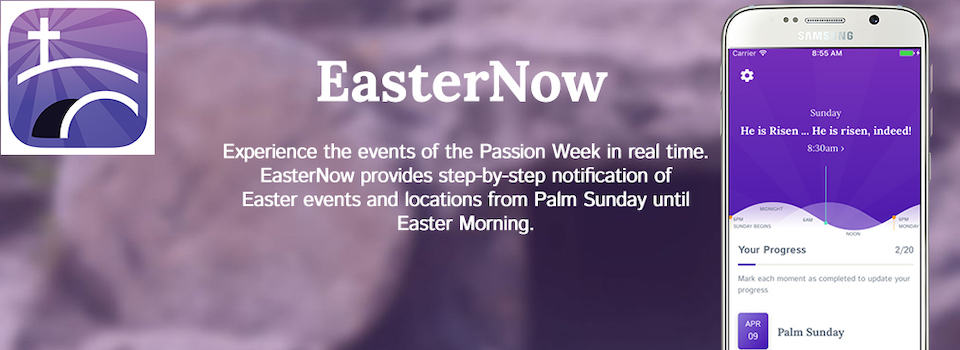The last place you want to be on a Sunday morning is standing in front of a congregation to preach. Not only is preaching someone else’s job, it’s probably not your best strength. Yet, Christ called you to serve in church leadership—and all leaders must be good on their feet, even in a sermon or two.
You may preach only a few times every year. If given the chance, you’d schedule your Senior Pastor to preach all the time in order to maximize his giftedness. Yet, that’s not realistic. He needs time for real life—family, illness, rest and planning. Some churches create preaching teams to accommodate the realities of life. Other churches call upon the Executive Pastor and other pastors to fill the gaps. So be ready to embrace the need to preach on an infrequent basis.
I stopped preaching on a weekly basis when I discovered the Executive Pastor role. Since then, I have preached—at times—in every one of my church ministries, but I am no longer in the weekly rhythm of preaching. For some reason I was always the person to speak on the Sunday between Christmas and New Years at one church. In a different location, I seemed to be the “go-to guy” for difficult sermon topics. For instance, I was asked to preach about church discipline on the Sunday we actually had to place a woman under discipline. In my current ministry, we share the pulpit in a multisite strategy. I usually draw the straw to preach at the least-attended site on many weekends; I also preach for all services when the Senior Pastor is on vacation or study leave. No matter when you preach, take each opportunity as a special time to maximize your ministry.
Even though preaching may not be in your comfort zone, develop the skills of public speaking. Few other skills position you to lead change and momentum as much as good presentation skills. Here is some advice for infrequent preachers:
Be yourself.
Before considering anything else, take Chuck Swindoll’s advice for all speakers; start with three commitments:1
- Know who you are.
- Accept who you are.
- Be who you are.
“These three,” wrote Swindoll, “if remembered and cultivated, will not only enable you to keep being you, they will make a world of difference in your verbal communication skills when you stand and speak to others.”2 Nothing is more foundational than personal authenticity. People understand that you are not the lead preacher. So enjoy the opportunity to offer your own voice to the whole congregation. When you become comfortable with yourself, people will be compelled to listen. It’s natural. So give yourself permission to be you, even when some of your sermon points fail.
Never assume you can get away with “parroting” sermons by other preachers—you can’t. Even Senior Pastors can only use other speakers’ material for a period of time. I worked with a Senior Pastor who became habituated to sermons from other preachers. Both the staff and congregation became hungry for something—anything—that he had heard from God himself. As an infrequent preacher, it’s important that people know you’ve heard from God, not some chapter from a book. You will provide confidence and stimulation for your audience when you stand before them with a word from the Lord. Authentic application always trumps recitation when an Executive Pastor preaches.
Cultivate habits that build confidence in speaking.
Great preaching arises from real-life interaction with Christ. This is especially true for infrequent preachers who must prepare sermons during a busy schedule. So cultivate regular habits that build your confidence, such as:
- Value your personal devotional times with Christ. If you’re hearing from the Spirit in Scripture on a daily basis, you’ll have something to say when you must prepare a sermon in the midst of policies, decisions and problems.
- Collect illustrations as you listen to sermons and read books so that you prevent the last-minute scramble for great illustrations. On a side note, you’ll chuckle when you can give a good illustration to your Senior Pastor for his sermon.
- Split the devotionals that you and the Senior Pastor present at staff meetings, board meetings and other leadership sessions. As you cultivate the regular habit of presenting devotionals for smaller groups, you will feel more confident about sermon preparation.
- Teach in Sunday School, equipping opportunities or leadership seminars on a regular basis, especially with community groups where non-christians meet. You will feel more confident about sermon preparation if you have established a regular habit of teaching people without faith.
Regular habits provide fodder for special sermons.
Work with your Senior Pastor to develop the habit of long-term sermon preparation.
Long-term sermon preparation gives you plenty of time to prepare for the infrequent sermon. Unfortunately, many pastoral staffs do not plan their sermonic schedule in advance. Some Senior Pastors even push away from the planning table for various reasons. For some, it’s simply poor study habits. For others, it’s their God-given temperament. They are at their best when they thrust into things at the last moment. If you work with such a person, accept them, give them grace and go with it. Yet, you can still help them carve time to plan ahead—at least enough ahead so that they tell you when you will preach.
Develop a process of sermon preparation that works for you.
Audiences seldom excuse bad sermons because the speaker had to write a new policy during the week. Good sermons start with great preparation. It takes work to preach well. This might seem obvious, but many infrequent preachers fail on Monday and Tuesday, not on Sunday. So develop a technique for sermon preparation that fits your time and inclination.
Several approaches to sermon preparation exist. Ask any seminary student who feels overwhelmed by the number of books about preaching. I prefer the process that Haddon Robinson taught for several decades.3 Other preachers have described their process in clear and concise terms. Once you have a process, use it until it becomes second nature. The process will direct your time and reflection since you do not “work it” every week.
Over-study the passage.
We cannot overemphasize this principle enough for infrequent preachers. Dr. Howard Hendricks at Dallas Seminary always reminded students to spend more time observing the scriptural passage than any other aspect of Bible study. Executive Pastors often fail because they look at one commentary, counting on the treasures that are encapsulated in its tomes. They assume that twenty minutes a day in one book will capture the essence and beauty of the passage. Guard against such practices. Study and then study again.
Use your sermon preparation as an opportunity to build into your relationship with the Senior Pastor by talking about the passage and presentation. Remember, preaching is his world; he can offer suggestions that you might never imagine. Ask questions about his insight into the passage—be purposeful about your questions because he may ignore steps in sermon preparation that are now intuitive to him. Besides, this gives you a chance to talk about something other than decisions and problems. In a similar way, talk about the passage with other pastors who preach infrequently. I have a group of Executive Pastors who regularly meet together for fellowship and brainstorming. They often have creative ideas.
Focus on a good introduction and conclusion.
Chuck Swindoll compares the introduction and conclusion of a sermon to the takeoff and landing of a plane.4 Even if the flight is bumpy, passengers enjoy a flight that takes off and lands with smoothness. Though every speaker should remember this principle, infrequent preachers should engrave it on the inside of their wedding ring. I’ve heard some poor sermons that began and ended well. Though I recognized the poverty of their presentation, people left talking about the conclusion.
End your sermon with action, not a poem or fluff. Guarantee that your conclusion motivates people to action. Executive Pastors are known for action and decisions. Dr. Paul Borden, one of the men who greatly influenced my preaching, prompted those of us who are infrequent preachers to be known for complimenting the congregation and unleashing them into action. Use your innate professional DNA to close a sermon with momentum and hope.
Use illustrations from your world, not just books with old illustrations.
Tailor your illustrations to the world of leadership and business—that’s your world. Few Senior Pastors—therefore few preachers—speak to marketplace leaders. Position yourself as the staff expert in these fields. One of the best measurements of my preaching is the number of conversations that I have with community and business leaders after my preaching. Two to four of these sermons per year produce great opportunities for networking.
Bathe your sermon in prayer.
Ask others to pray for your sermon. People will appreciate the chance to be part of your life—how often do people get to pray for their pastor in an area in which he feels inadequate?
Prepare for unforeseen times when you need to preach without warning.
Have a sermon ready to pull out on Saturday night. Keep two to three sermon manuscripts for emergency purposes.
Christ is both encouraging and empowering. Our preaching, though we appear behind the pulpit only on full moons, should do the same. So cherish the moments when you stand with a well-worn copy of the Word as an infrequent preacher. Your authenticity and preparation will pay off. People will listen—and they, too, will learn to cherish the moments when you preach.
1Chuck Swindoll. Saying It Well. New York: Faith Words, 2012), x-xi.
2Chuck Swindoll. Saying It Well. New York: Faith Words, 2012), x.
3Haddon Robinson. Biblical Preaching. Grand Rapids: Baker Book House, 1980.
4Chuck Swindoll, class notes, “DM550 Effective Church Ministries,” Jan. 15-17, 2008.











